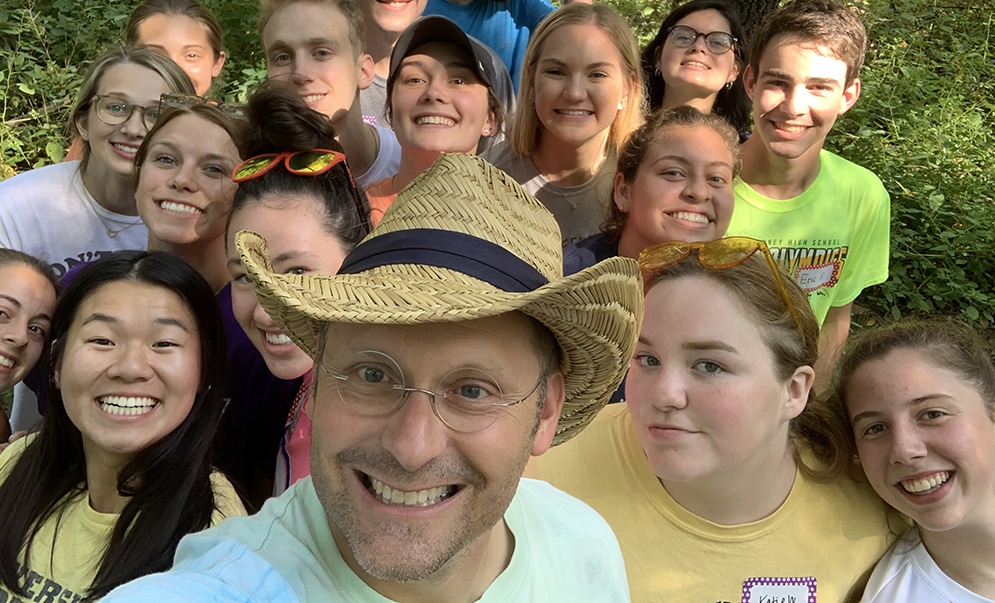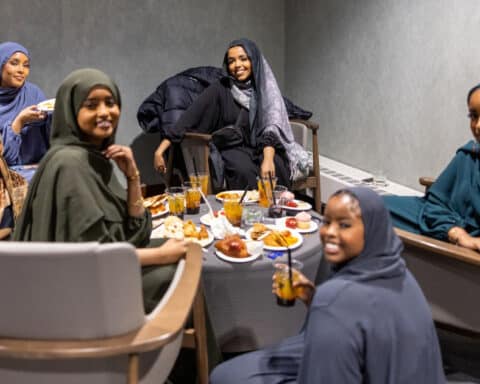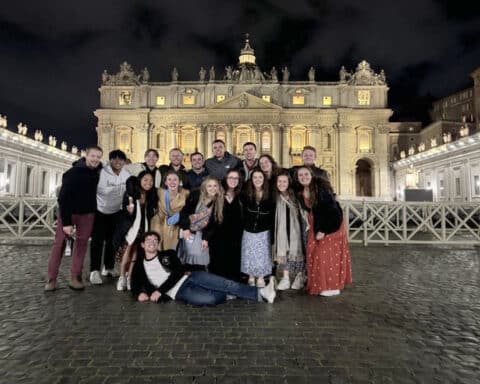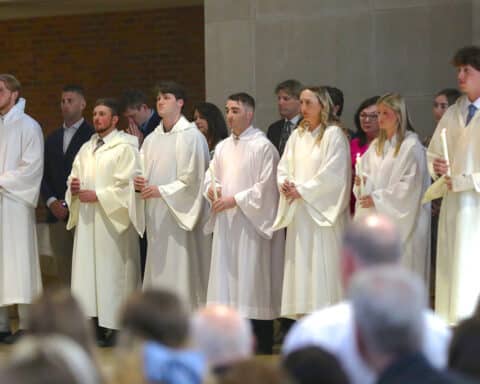There was a lot of uncertainty at Spring Hill College in Mobile, Alabama, when students were asked to move out before the spring semester ended.
“We thought it was temporary and that they would come back toward the end of the semester,” said Colleen Lee, director of campus ministry.
They shifted into support mode to accompany students via phone, texting, online posts and virtual prayer groups from the chapel.
“When it became known that we would not be continuing the semester on campus, that we would be staying remote, students went through a mourning process of what it could have been,” Lee said. “There was a real loss of normalcy for them, and the loss of traditions and rituals that marked their transition.”
The college will open for the fall semester, but, like on campuses everywhere, it won’t be the same. Overflow from the Sunday night student Mass will be in a setting that forms community. Retreats and ministry groups will be smaller.
Read other stories in our special college section here.
“We will definitely have a role of accompaniment and a ministry of presence,” Lee said. “We’re trying to look at this not as a disappointment but as an opportunity to grow. If the pandemic has taught us anything, it is to value our relationships with one another.”
Going virtual
A couple of unexpected things happened when campus ministry went virtual at Rockhurst University in Kansas City, Missouri. In addition to students who had been involved, many who went back home started signing up for Zoom and other internet activities for the first time.
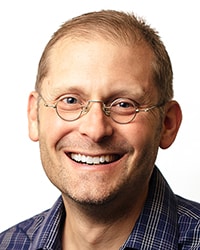
“We had outgoing students who had never participated in our programs sign up on the last day of their undergraduate career,” director of campus ministry Bill Kriege said. “That was huge evidence to me that they were really searching.”
Incoming students began making contacts to find new friendships before they arrived, another indication of the desire to connect.
Last year Kriege and his team surveyed the pattern of student needs. They found a distinct increase in those who considered themselves spiritual but not religious, and there were more students dealing with mental health issues.
“We spent a lot of time in discernment rethinking how to do things,” he said. “It became very clear that we should have more of an accompaniment ministry rather than a program based model. And it’s interesting that since the pandemic hit, we have been more confirmed in that discernment. It’s a great gift of the Holy Spirit, and we’re going to focus on that.”
Plans are underway to overcome Zoom fatigue with new ways to use technology. There will be a second student Mass in the large-capacity St. Francis Xavier Church. A Frosh Getaway Retreat at a nearby center will be divided into two weekend groups, one night each, instead of one from Friday to Sunday. International trips are cancelled, but the ministry is exploring local and regional options, even virtual.
“I hope that our young people will be able to move outside themselves and outside of their own fears and frustrations,” Kriege said. “I believe that God, that the Holy Spirit, is creating something new.”
Safe sociality
Some students at Newman University in Wichita, Kansas, stayed on campus to complete online classes last semester while most of them went home and used Zoom. Hybrid classes will be available for the fall semester, along with all the recommended guidelines for masks and spacing. Luckily, the large chapel can fit 100 properly spaced.
“We transitioned to online Bible studies and retreats in the spring, but they didn’t have the same impact for students,” campus ministry director Father Adam Grelinger said. “They didn’t have the ability to draw out good discussions and make it a life-giving experience for the students, so I hope that we can safely meet in small groups to pray together. I don’t think we’re going to have any big speaker events or retreats.”
Students have told him that they want to be back and they want things to be normal, which isn’t possible.
“Hopefully, we can find ways that they can safely be with each other in small groups,” he said. “It’s important to be around one another at that age. They are super social, and it’s the same with their faith. They don’t want to just talk about it. They want to share things together.”
Their campus ministry is considering ways to continue outreaches like safely volunteering with local charities.
“In some sense, there’s an excitement to try new things,” Father Grelinger said. “This pandemic creates an opportunity to rethink the way we do things. God’s providence is at work to make us think differently. It doesn’t feel comfortable yet, but I do believe that God is at work. He’s leading us somewhere, and we will learn something and be better for it.”
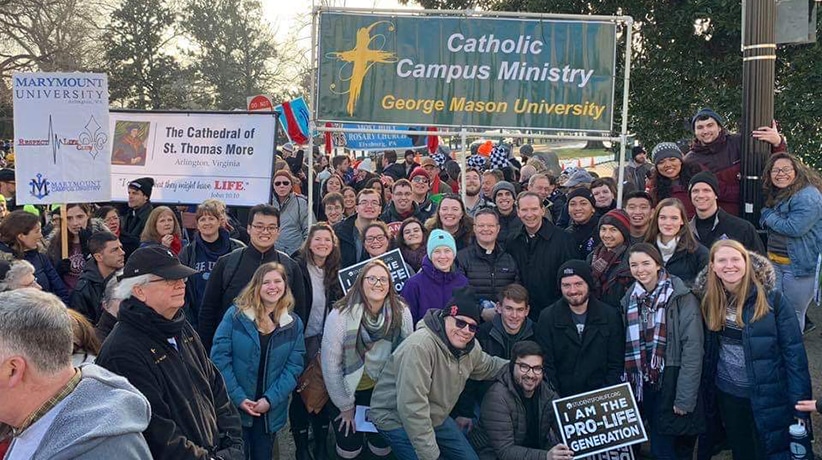
The Newman Center for Catholic students is very active at George Mason University in Fairfax, Virginia, and John More, one of the campus ministers, is altering plans for one of their biggest annual events. This year, the Back to School Luau will be scaled down to more of an open house with staggered attendance.
“It’s fun and it gives us a chance to welcome students to the chapel and to plug programs and student events,” said More. “It lets Catholic students know that we are here when they need to talk, or if they want to learn about Catholicism.”
Outreaches changed in the spring to virtual programs and social media connections.
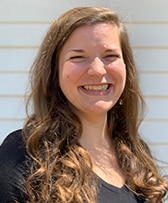
“We had an amazing group of students who right away started doing Liturgy of the Hours, and that grew and grew,” said Kristen Juda, one of the campus ministers. “Our students really had a desire for consistency and connected in prayer. They craved that and they initiated it.”
The ministry is considering feedback from students about fall programs that could be virtual, in small groups or hybrid.
“We’re taking it one day at a time,” Juda said. “We always have a big training for our student leaders to get them pumped up. We’re trying to figure out how to do that virtually and what kind of events we can run according to guidelines. Our goal is to connect with as many students as possible.”
Pros/cons of Zoom ministry
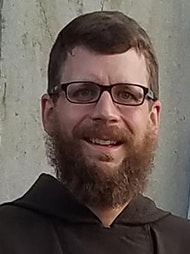
The Catholic Student Association is centered at St. Thomas More University Parish adjacent to Indiana University of Pennsylvania in Indiana, Pennsylvania. Cindy Schillinger is pastoral associate and director for campus ministry. Father Tage Danielson, OFM Cap, parochial vicar to that and another parish, was recently assigned to work with her.
Schillinger has met with students via Zoom.
“They have been very happy to see other people’s faces with online learning and to be able to connect,” she said, “But online learning was very stressful for them. I think they’re definitely burned out from that. But when we meet via Zoom, they’re relaxed and very happy to be in a more social type of meeting than in something stressful.”
Daily Mass will continue (the church is big enough for distancing) and students have traditionally been invited to participate in liturgical ministries, like music. But there could be changes.
“That’s one conversation we’re going to have,” Father Danielson said. “Would they like a different time? Something to make it more memorable for them to come to Mass?”
They’ll be exploring viable ways to have prayer or study groups and service projects that keep students connected in sharing and living their faith.
“It’s been a learning experience for all of us, and it’s only going to get better,” Schillinger said.
Maryann Gogniat Eidemiller writes from Pennsylvania.

